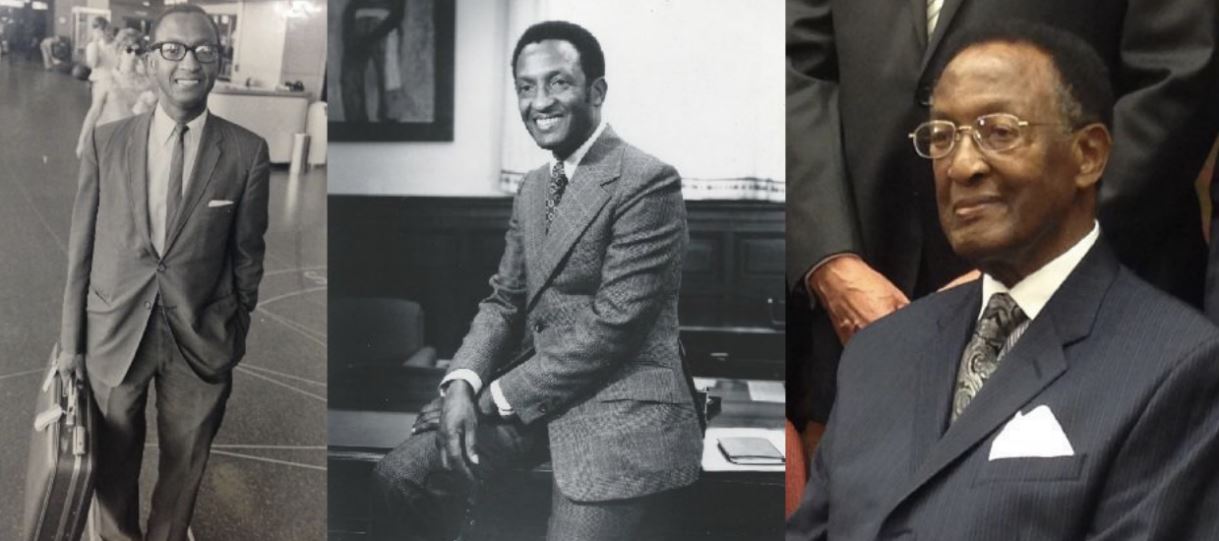[ad_1]
By Micha Green, AFRO Washington, D.C. Editor, [email protected]
The District of Columbia has lost a history making and barrier breaking politician, as the first Chair of the Home Rule D.C. Council, Sterling Tucker, 95, has passed away.
According to The Washington Post, Tucker died on Sunday, July 14, however, the D.C. Council took to Twitter to announce the news on Tuesday night.
“It is with the deepest sadness [and] most profound respect that we announce the passing of Sterling Tucker, born Dec. 21, 1923,” the Council wrote. “A truly epic [and] exceptional figure in D.C. history, he served both in the presidentially-nominated Home Rule Councils of D.C., as vice chair [and] chair.”

From its establishment in 1790 until 1973, the D.C. lacked local autonomy and was lawfully overseen by Congress. In 1967, D.C. received a mayor-commissioner and nine-person presidentially appointed Council.
In 1969, Tucker served as vice-chairman of the appointed Council. When the District of Columbia Home Rule Act of 1973} was passed, Tucker became the first chairman of the Home Rule Council- marking the beginning of present- day District government.
While remembered as a founding figure in District’s autonomous government, Tucker is also lauded as being a leading activist during the Civil Rights Movement.
“Sterling Tucker was fascinating. He headed up the Urban League [and] Poor People’s March, before being named by Nixon as vice chair of the pre-Home Rule D.C. Council.
Born in Akron, OH and a graduate of the University of Akron, Tucker moved to D.C. after completing his master’s degree, according to The History Makers.
In 1956, he became the head of the Urban League’s Washington, D.C. chapter, a position he held until 1974 upon official election to the D.C. City Council.
As head of the Urban League, he organized Solidarity Day, a demonstration that brought out 50,000 protestors, held in the nation’s capital on June 19, 1969. The Juneteenth protest was part of the Poor People’s Campaign and was led by the Rev. Ralph Abernathy and Coretta Scott King.
In 1978, after four years serving on the Home Rule Council, Tucker lost a mayoral race to the late Marion Barry, affectionately called in the District, “Mayor for Life.”
“He won as Council Chair, then lost the epic 1978 mayoral race to Marion Barry ([and] Walter Washington) by only 1356 votes,” the Council wrote.
After losing the mayoral campaign, he was named assistant secretary of the Department of Housing and Urban Development, a position he held until 1981.
In 1981, the politician opened Sterling Tucker Associates, a management consulting firm, and spent 1988 to 1990 working to combat drug usage.
According to The Washington Post, Tucker died in his home after battling multiple health complications. He was 95.
[ad_2]
Source link

